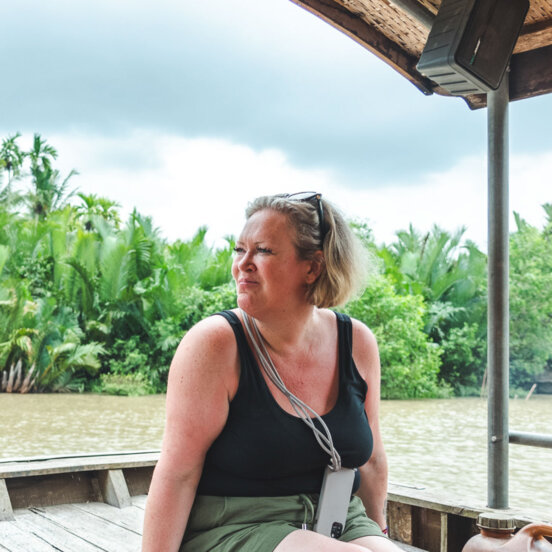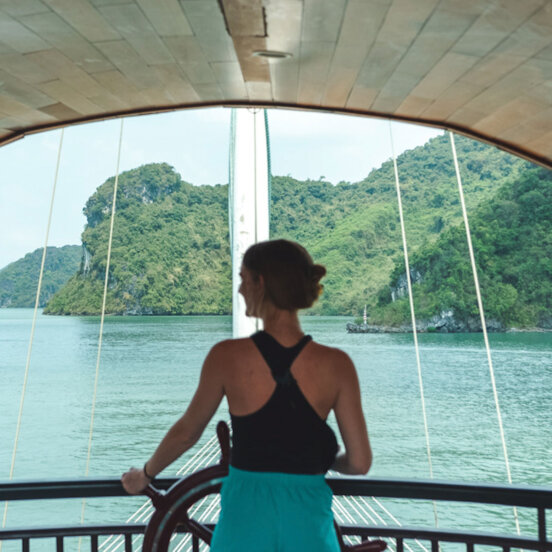The world’s happiest country: Inside Costa Rica’s pura vida mindset

Many of us spend our days navigating a million micro-stresses, from family demands and work deadlines to the bleep, bleep of breaking news.
Yet, there’s one country that seems to have taken a step back from this maelstrom of modern living – Costa Rica. This exotic land of steamy jungles and sunshine beaches, regularly ranked as one of the happiest and most sustainable countries on Earth, is steeped in the mentality of pura vida. Translated as “pure life”, the slogan can be seen everywhere in the Central American country, emblazoned across hats, totes and T-shirts.
But the meaning of pura vida extends far beyond a tourist trope. For Costa Ricans, it’s a philosophy, a language and a way of life that seems to sum up the nation’s uniquely easygoing and joyful outlook.

Pura vida is a philosophy, a language and a way of life
“Ever since colonial times, Costa Rica has stood apart from the main ways of trading in Central and South America, geographically and because of the terrain, lack of natural resources (for example, gold mines) and weather conditions,” says Edgar Brenes, Pack Leader and seasoned local guide for Flash Pack.
“Historically, this means we’ve had less division and a more equal society compared to other neighboring countries. As a nation, we’re peaceful and easygoing, and news reaches us a bit later. We also, for example, became the first country in the world to abolish our army in 1949. Instead, that defence money was redistributed towards education and healthcare,” says Edgar.
Although the phrase pura vida didn’t surface until the 1950s – arising from the huge popularity of the Mexican film, Pura Vida, starring Antonio Espino – it immediately chimed with the national character. “Costa Ricans just fell in love with the movie and everybody started to say the phrase. It became our adopted mantra – used in our everyday conversations and lifestyle,” he continues.

It’s become our adopted mantra
Nowadays, pura vida is very much part of the Costa Rican vernacular. Everyone, from the friendly barman who serves you an iced drink to the surfer cycling past you with his board, will say it as a greeting and as a goodbye.
It’s a colloquialism that doubles up across a range of friendly meanings, from “How are you?” to “Everything is awesome”, “Life is good” or, even, “We’re fine now, let’s move on” after an argument. In essence, it’s also a reflection of the warmth and friendliness that lies at the root of the Costa Rican spirit.

It doubles up across a range of friendly meanings
“I remember when I first set up my business 10 years ago, everyone was so helpful and welcoming,” says Kjeld Schigt, a Dutchman who runs the luxury surf resort Kalon Surf on Costa Rica’s remote Osa Peninsula.
“It sounds bad but my immediate reaction from a European background was, ‘What do they want? Why are they being so nice?’ The fact is, people here are just very, very kind with zero agenda. They’re open-minded and they will always try to help you with whatever problem lies at hand. You hear the word amigo (friend) a lot,” says Kjeld.
This attitude is underscored by more of a willingness to go with the flow, too. “In the West, we’re always in such a rush to fix issues and find immediate solutions, whereas Costa Ricans have more of a creative, shorter-term outlook,” he explains.
“They’ll say, ‘Hang on, all is good – pura vida,’ before racing to buy new parts for a car, or whatever it may be. Instead, they will see whether an improvise can be made with what we’ve got,” he concludes.

Costa Ricans have more of a creative, shorter-term outlook
This mindset is also linked to an open-minded curiosity about people and the world at large. Edgar says, “I did a road trip across the States with friends a few weeks ago. I was amazed that no Airbnb hosts ever came out to say hello to us – everything was done by key locks.”
“Costa Rica is a small nation with a population of five million and, especially in the rural regions, you’ll always find people outdoors, talking, getting to know each other. Everyone knows their neighbors and extended families tend to always live close to each other,” he says.
“I find people here are very respectful of different religions and sexualities, too. For instance, the main religion in Costa Rica is Catholicism but our communities are never critical of other religions. And, in a similar vein, we’re considerate about issues such as transgender rights.”

Everyone knows their neighbors
This communal, inclusive approach is also something Kjeld, a former corporate high flyer, looks to build into the culture of his surf retreat. “Pura vida has a deeper meaning of joy and connection, which we aim to capture via activities like shared group meals and the ritual of coffee-making. Often, in our reviews, guests have remarked how happy everyone seemed and how our staff appear to genuinely enjoy what they do.”
Pair this with the soothing impact of the great outdoors – Costa Rica’s rich tapestry of national parks and natural landscapes makes it one of the most biodiverse places on the planet – and you can see why pura vida is key to a simpler, more relaxed and connected way of being. And, why there’s a huge focus on respecting and protecting the environment.

You have to be calm and relaxed
“I’ve become a warmer and more patient person during my time living in Costa Rica,” says Kjeld, who has since fallen in love with a Costa Rican woman and is father to their two young boys. “You simply can’t operate here if you come in with a big mouth or bad energy. It’s all about relationships and, for that, you have to have pura vida; you have to be calm and relaxed.”
“It’s no coincidence that, with our outlook, Flash Pack groups in Costa Rica always bond so well,” finishes Edgar. “We do rafting, ziplining, share adventures, go for drinks and talk to the locals. It creates a philosophy and dynamic that’s very special.”
Find out more about Flash Pack’s adventure to Costa Rica for a first-hand flavour of pura vida, along with volcanic hot springs, catamaran sailing, rainforest lodges and more.
Got a story or adventure that could inspire a solo traveler like you? Tag @flashpack on social or email [email protected] to be featured.
Images: Flash Pack, Kjeld Schigt, ©Ali Kaukas & Unsplash










